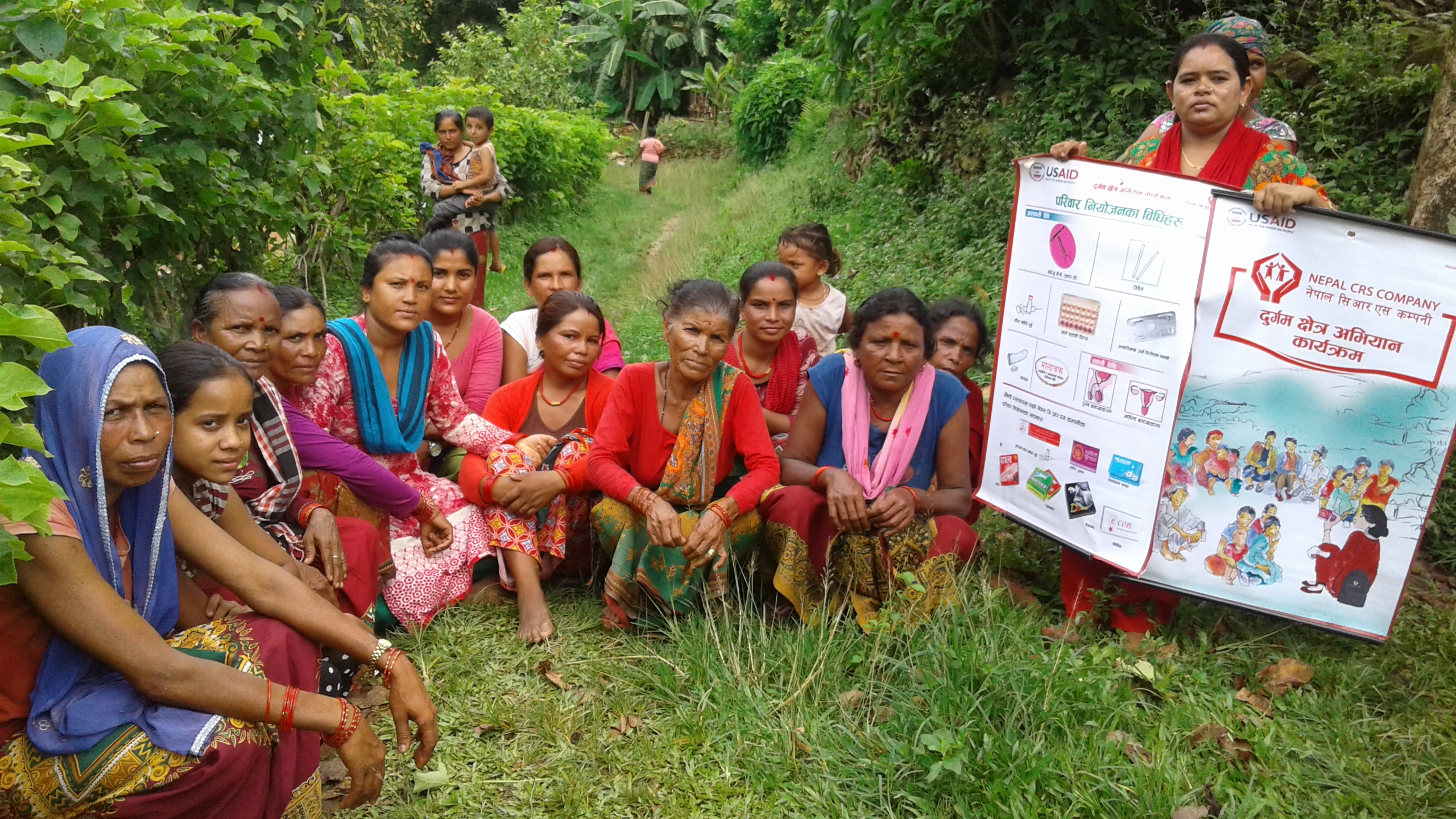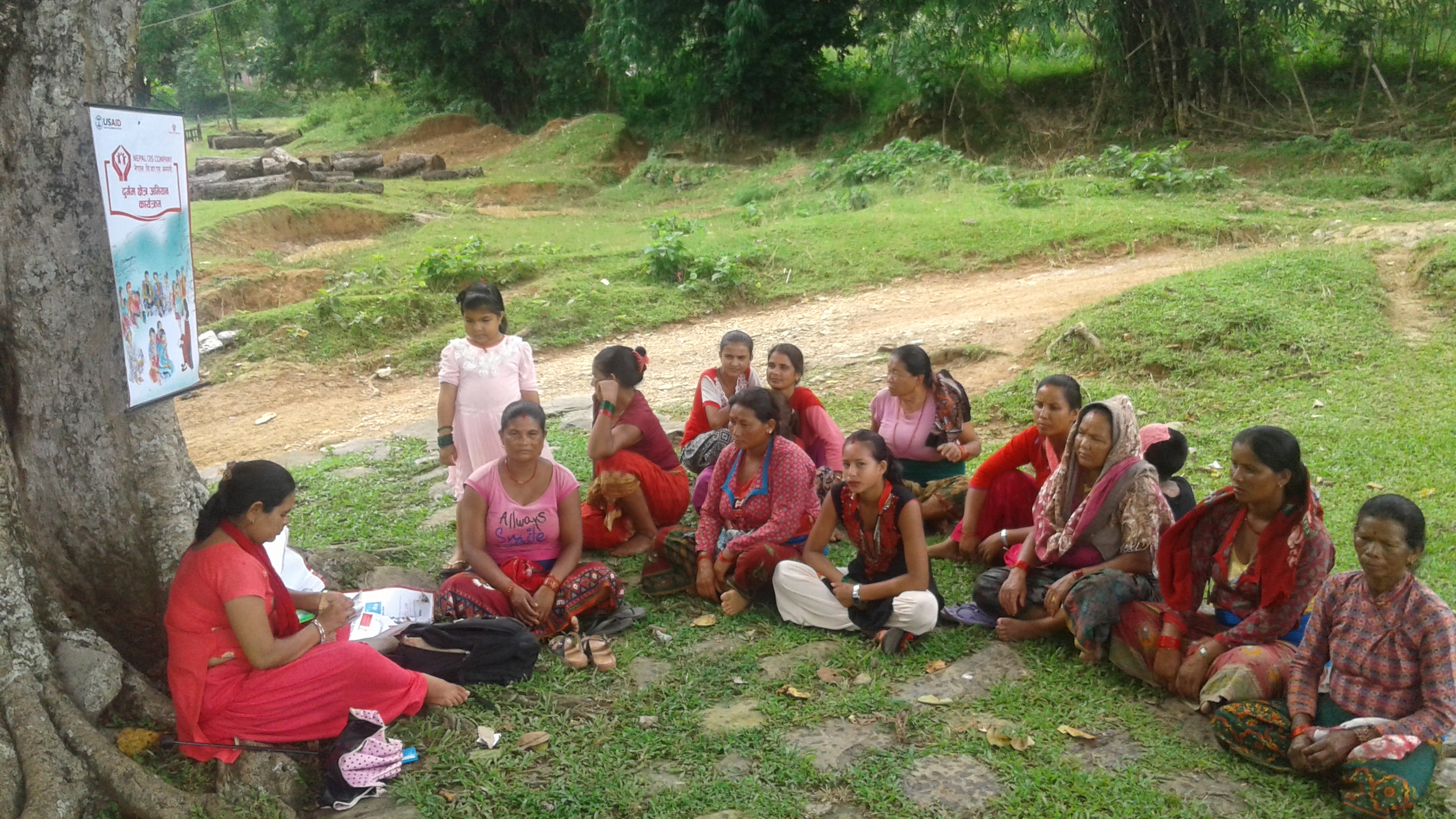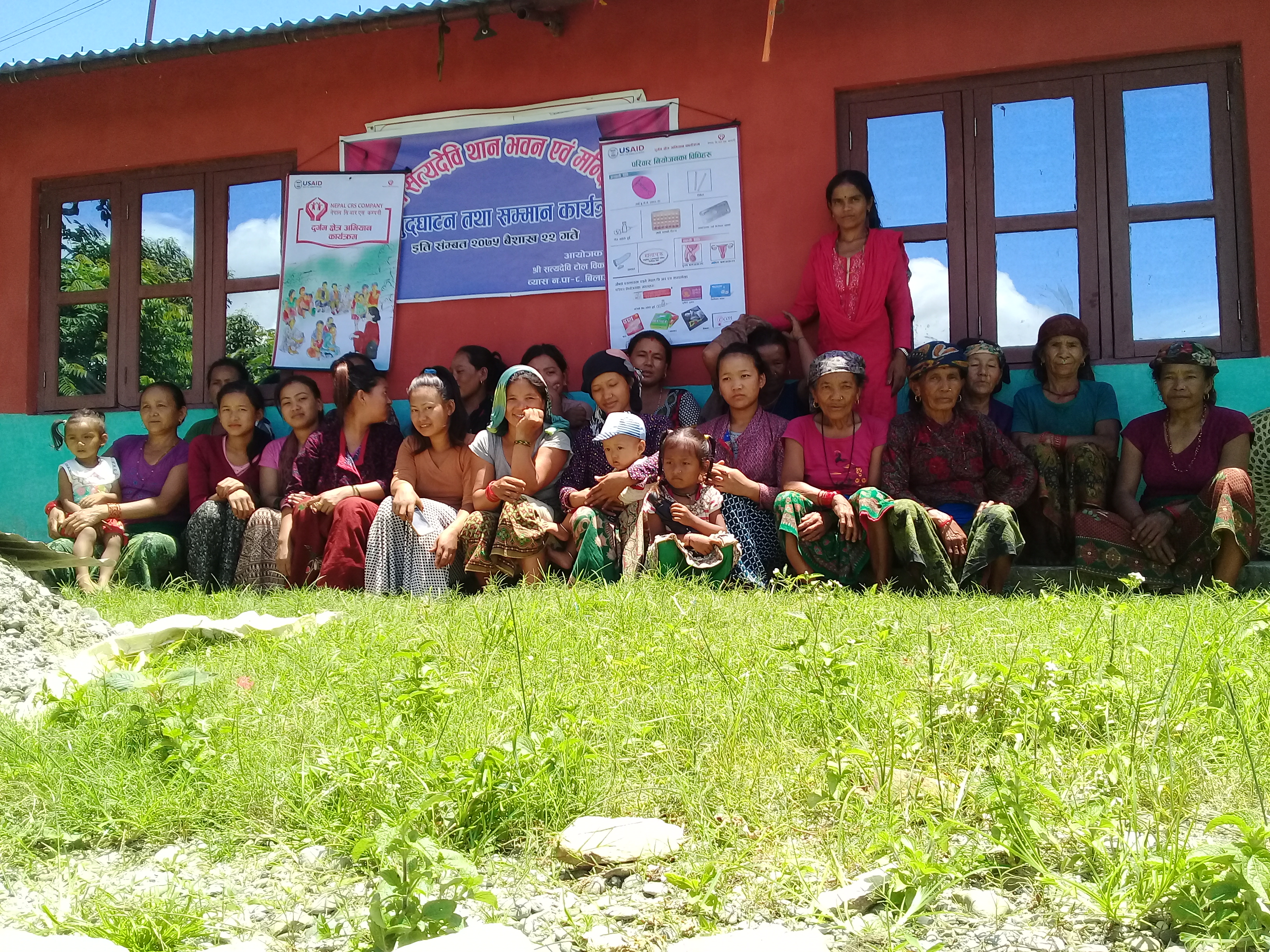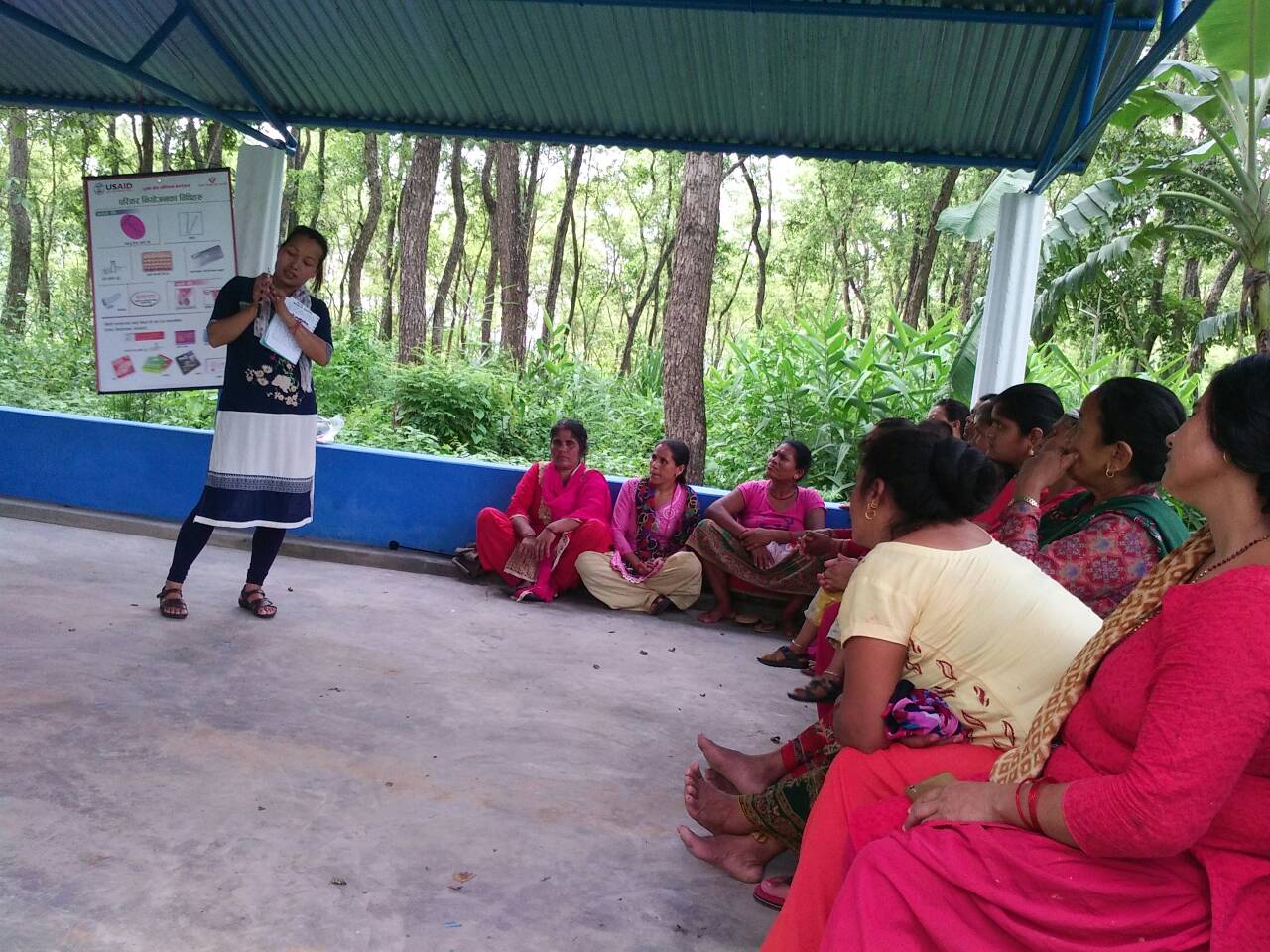Promoting priority health products in remote rural settings

The Nepal CRS Company, with support from SHOPS Plus, recently launched an initiative to disseminate important health messages in rural areas through women’s groups. The initiative is a community-based social and behavior change program that uses community change agents to promote good health. The program focuses on family planning, diarrhea prevention and treatment, use of antenatal care services and facility delivery, and the prevention and treatment of uterine prolapse, a condition in which the pelvic muscles no longer adequately support the uterus.
The initiative will be carried out in four hill districts: Terhathum, Ramechhap, Tanahun, and Arghakhanchi. The team selected these areas because they are some of the most remote in the country and have some of the poorest reproductive and child health indicators in Nepal. They are also part of CRS’s larger USAID-funded project Ghar Ghar Maa Swasthya (GGMS) or Healthy Homes Program.

In Tanahun, located in Western Development Region, one provincial coordinator and her team of 16 community change agents has conducted 184 women’s group sessions, reaching 3,765 women with messaging. The change agents use women’s meetings to disseminate key messages on family planning, the importance of antenatal check-ups, institutional delivery, health and hygiene, and the prevention and treatment of uterine prolapse. The agents link women to appropriate product delivery points and referral facilities as needed. The initiative also uses gender integration strategies, including men’s groups and groups for mothers-in-law.

To help make the behavior change campaign effective, SHOPS Plus conducted a survey on the knowledge, attitudes, and practices of women in the community between 15 and 49 years old. The team used the results of the survey to create a baseline value for the program and propose targets. SHOPS Plus then worked with the Nepal CRS Company to update the training and behavior change materials for the community change agents leading the women’s groups. The survey findings also informed implementation strategies for each district. The program focuses on family planning in Arghakhanchi and Tanahun, hygiene sanitation in Ramechhap, and both family planning and health facility delivery in Terhathum. The findings will provide CRS with relevant information to design and implement data-driven activities and evaluate the effectiveness of the interventions.

The rural initiative creates a supportive environment that enables community members to adopt, sustain, and maintain positive and desirable health behavior outcomes. Working in small, closely-knit communities with active community groups creates an opportunity to build sustainable systems for delivering health messages and increases community engagement and participation. The program will contribute to SHOPS Plus’s goal of supporting the sustained increase in access, demand, and use of priority health products through the Nepal CRS Company.